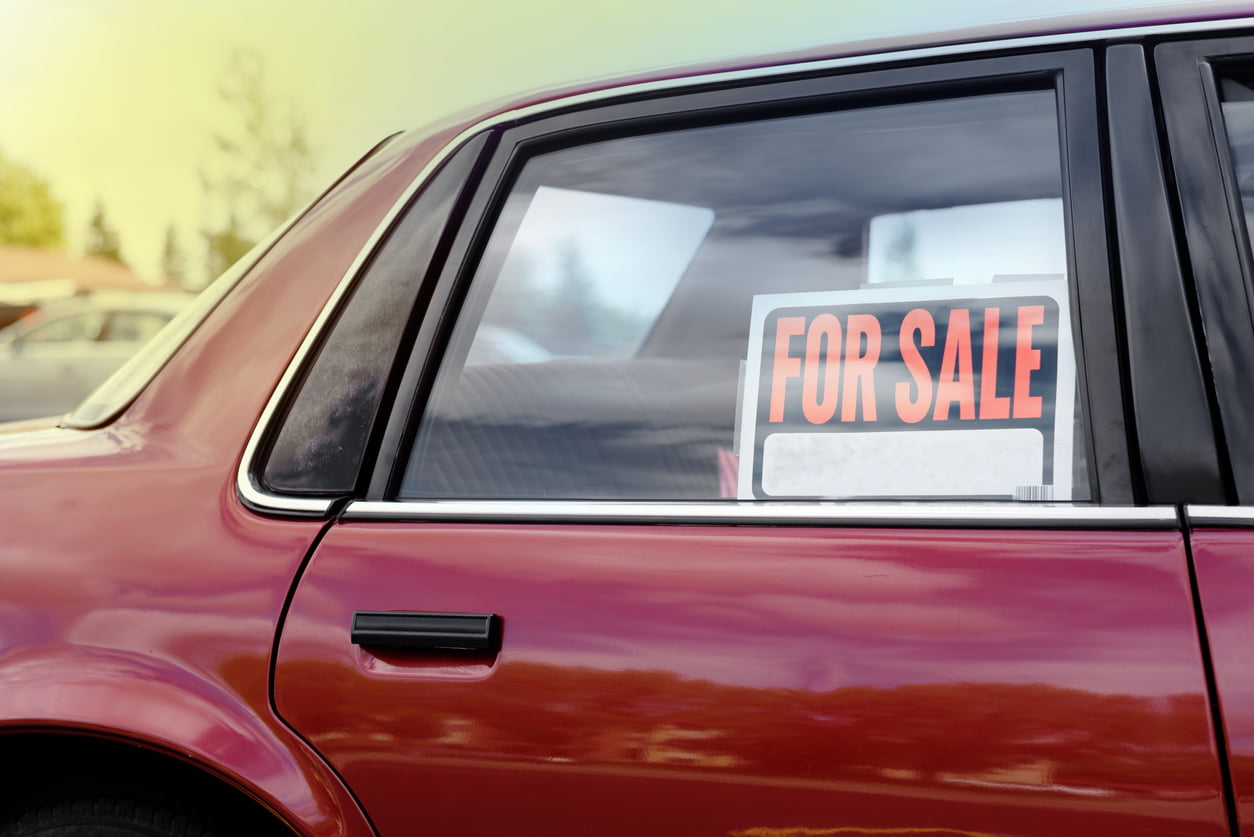Thinking about selling your car privately in Ontario? Taking this process into your own hands maximizes your profit and gives you full control over the transaction. However, there are several factors that go into the private sale of a vehicle, leaving the seller overwhelmed. Here at isure, we want to take the guesswork out of the transaction for you. We’ve outlined the best practices on how to sell a car privately in Ontario, and have answered some common questions along the way.
Where to begin…
Deciding to sell used vehicles has grown in popularity over the past few years. But few understand how much work goes into preparing your car for sale. Before listing, it is important to establish a few key details:
- Timeline: How quickly do you want or need to sell the car? Are you looking for a quick sale or the right offer?
- Preparation: Will you repair any existing damage or sell “as is”?
- Listing: Where are you going to list the vehicle for sale? What are the best websites to choose?
- Vehicle value: Have you considered your listing price? How much will you like to receive and how little are you willing to settle for?
Details to get in order
Before entertaining offers, there are a few details that need to be taken care of first:
- Used Vehicle Information Package (UVIP): This package contains the vehicle details, including the year, make, model, colour, body type, cylinders, and power.
- Make sure that the Vehicle Identification Number (VIN) on your car matches the number on your permit a.k.a. your green ownership document.
- Check to ensure the vehicle has no money owing on it.
Once you have cleared the vehicle of any liens and established that the paperwork is in order, you can move on to listing your vehicle.
Listing your vehicle
Once you have decided to list privately and have the UVIP in order, you can now list your vehicle. Make sure to:
- Prepare your vehicle for sale, as in having it cleaned/detailed.
- Be sure to snap photos to emphasize your car’s best features.
- Set a competitive price in order to sell quickly and for the best amount possible. Evaluating your car’s worth is crucial when determining the asking price. Start by researching the market value of similar make, model, year, and mileage vehicles. Websites like Kelley Blue Book, CARFAX, or Canadian Black Book provide you with a comprehensive valuation based on various factors.
The benefits of a private car sale in Ontario
Let’s explore the benefits of selling your car privately:
- Profit: You have the potential to receive a higher sale price compared to trading it in at a dealership.
- You’re in the driver’s seat: When you sell privately, you have the opportunity to negotiate a better deal and retain the vehicle’s full value. Plus, you can take your time finding the right buyer and avoid the hassle of dealing with dealership trade-ins.
- Setting the price: You can determine the value of your vehicle based on its condition, market demand, and other factors. That way, you can potentially earn more money from the sale by asking for a higher price.
- Showcase your vehicle: Now that your car is ready and priced competitively, you’ll want to market it effectively. Online platforms are a popular choice for advertising your car to a wide audience. Websites like AutoTrader, kijijiautos.ca, and Facebook Marketplace invite you to create detailed listings with multiple photos and descriptions. Ideally, highlight your car’s unique features and provide accurate and detailed information to attract serious buyers.
- Get personal: Another advantage of selling privately is the ability to establish a personal connection with the buyer. When you meet potential buyers face-to-face, you can answer their questions, provide additional information, and build rapport.
So, how do you sell your car privately?
Most Canadians start their used car search online. In fact, Canadian car shoppers spend 63% of their vehicle research time online, and 42% of them visit a listing site first.
- Posting your vehicle on popular listing sites, like AutoTrader, Facebook Marketplace, Craiglist, Kijiji Autos, eBay, and Used.ca, will put you in front of a large pool of potential buyers.
- Once you have found your buyer and have a mutually agreed upon sale price, it is your duty to hand over the UVIP, making sure to complete the information on the package.
Thankfully, a Bill of Sale is included in your UVIP. Be sure to fill in the VIN, make, model, year, power source, body type, colour, price with relevant taxes, as well as the buyer’s information.
- You must also complete and sign the Application for Transfer, located on the back of the “vehicle portion” of the permit (registration), and give it to the buyer. You will also need to write the name and address of the buyer, record the current mileage, date of sale, and sign the form yourself. Be sure to keep the “plate” portion of the ownership for your own use.
- Remove your licence plates from the vehicle. Remember, plates travel with the driver, not the vehicle. Make sure you keep the “plate portion” of your permit (ownership) as well. You will need this if you want to register your plates on another vehicle.
- Transfer funds. Cash and bank drafts that are delivered in person are the best and most secure forms of payment when privately selling your used car. Avoid personal cheques or wire transfers, as these are more susceptible to fraud.
What can affect my car’s value?
Factors, such as the history of the vehicle, mileage, and condition of the car are some of the more obvious determinants of a car’s value. However, there are other factors that have a bearing on the vehicle’s value:
- Colour
- Non-smoker owner
- Service history & work required
- Extended warranties
- After-market features
- Extras, like winter tires
- Recent replacements (i.e. battery, brakes, windshield, etc.)
- Reliability and safety ratings
- Demand for used cars
Is trading my car the better option?
While trading your vehicle back to the dealership may seem like the easier (and safer) option, be aware that you may not get as much money for the car as you would if you sold it privately. Any little scratch, dent, or upholstery stain will need to be fixed, and the cost of that repair will likely impact the trade-in value and be deducted from your offer. Visit several dealerships and compare offers when you’re wondering how to sell a car in Ontario. While selling privately may require more work on your part, the increased profits from putting in the work to advertise and negotiate for yourself can translate to higher profits.
Next, you take or fax the bill of sale to a ServiceOntario centre, along with a safety certificate and registration papers. If you decide to sell to a relative, you’ll also need a Sworn Statement for a Family Gift of a Used Motor vehicle in the Province of Ontario.
Should I have a contract for selling the car?
Absolutely. If you are wondering how to sell a car in Ontario, well in simple terms, you are making a legal sales transaction. A bill of sale is a type of sales receipt. For private sales, it details the transaction between a buyer and seller. In the case of a car sale, it acts as a proof of ownership transfer. They are both sales receipts and proof of purchase.
What does listing the car “As Is” really mean?
The term “As Is” on a bill of sale means you are selling the car in its current condition. There is no warranty or quality guarantee being offered. As the seller, you are not liable for issues with the car once the sale is completed. If you list the car “As Is”, the seller will expect that the vehicle may require some work to be done. As a result, this will also mean that they will expect to pay less than the market value. Some of your negotiating power will be lost with cars listed this way, so adjust your expectations. For those in the market for vehicles that don’t mind a little work, it could be a win/win for both the buyer and the seller.
Finally, you’ll also need to adjust your car insurance policy. This will release you from any liability associated with the car. Simply let your isure broker know you no longer own the car and no longer need coverage. They may want details, which you have in all the documents you’ve kept throughout the process.
The question of how to sell a car in Ontario may seem like a daunting task. But with a little bit of research and preparation, it can be the more lucrative option to sell your vehicle. Still have unanswered questions? Contact your isure broker for more information surrounding selling your car and how your car insurance rates will be affected.




